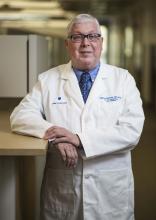Primary and emergency care providers must step up prevention efforts and the use of state-of-the-art medicine when treating patients with addiction, according to the first-ever U.S. Surgeon General’s report on alcohol, drugs, and health.
In the report, “Facing Addiction in America,” Surgeon General Vivek H. Murthy, MD, called on health care providers to increase access to care and approach addiction and substance use disorders as they would any other chronic health condition.
“We must help everyone see that addiction is not a character flaw – it is a chronic illness that we must approach with the same skill and compassion with which we approach heart disease, diabetes, and cancer,” Dr. Murthy explained.
In addition to offering an action plan to address substance use of all kinds, the surgeon general’s report updates the public on the state of the art of addiction science, and includes chapters on neurobiology, prevention, treatment, recovery, health systems integration, and recommendations for the future.
Data from 2015 show that more than 27 million people in the United States used illicit drugs or misuse prescription medications, while a quarter of the entire adult and adolescent population reported binge drinking in the past month. However, only 10% of those with a substance use disorder received relevant specialty care.
For the more than 40% of those with substance use disorders who have a comorbid mental health condition, less than half were treated for either, according to the federal Substance Abuse and Mental Health Services Administration.
That treatment gap is the direct result of lack of access to affordable care, shame, discrimination, and the lack of screening for substance misuse and substance use disorders in the primary care setting, Dr. Murthy wrote.
To address the gap, the surgeon general laid out a plan that starts with increasing community-wide substance use prevention efforts, such as enforcement of underage drinking laws and DUI laws, and offering needle exchange programs.
Dr. Murthy also called for a coordinated public health response to addiction, including an overhaul of criminal justice where substance use is concerned, and an emphasis on preventing known risk factors for substance misuse.
The report underscores the need for a better trained and integrated health care workforce equipped to treat addiction as a chronic disease in the general health care setting, enforcement of addiction and mental health parity laws, and the delivery of services based on the latest research into the psychosocial and biological underpinnings of substance use.
Surgeon General Murthy also used the report to urge professional medical associations to advocate for more access to medication-assisted treatment and prescription drug monitoring programs, and to create evidence-based guidelines for integrating substance use disorder treatment.
The American Medical Association responded positively to the report. In a statement, AMA President Andrew W. Gurman, MD, called it a “crucial starting point” and praised its “important guidance for the nation to see that addiction is a chronic disease and must be treated as such.”
While also supporting the report, others in the addiction medicine field pointed out that such starting points had come and gone before.
“As a profession, we saw what was happening 10 years ago, but there was no strong [push] to respond, for a variety of factors,” Ako Jacintho, MD, director of addiction medicine for HealthRIGHT 360, a California community health network, said in an interview.
Too many physicians were willing to prescribe opioids without fully understanding their effect, Dr. Jacintho said. Others who were troubled by the growing number of patients presenting with opioid addiction pushed for more education and addiction specialization, but were thwarted by politics, he asserted.“The professional medical societies such as the AMA and the American Academy of Family Physicians should have put more pressure on the American Board of Medical Specialties a decade ago to create an addiction medicine subspecialty,” Dr. Jacintho observed.
Access to addiction specialty care would be wider by now had the ABMS not continued to allow psychiatrists to maintain their hold on the specialty, according to Dr. Jacintho, a family physician who treats patients with addictions.
Earlier this year, the ABMS announced it will certify the subspecialty of addiction medicine through the American Board of Preventive Medicine. A date for the first examination is pending.
With the surgeon general’s imprimatur, Dr. Jacintho expects physicians will be more aware that they should at least screen for substance use. He also predicted the report will lead to more patients demanding that addiction treatment services be made available in the primary care setting – and that practitioners will respond, either by subspecializing in addiction, or by otherwise integrating it into their practices.
That should be easier to do with the recently passed Comprehensive Addiction and Recovery Act of 2016, which expands access to medication-assisted treatment for addiction, Dr. Jacintho said.
Dr. Murthy also urged pharmaceutical companies to continue developing abuse-deterrent formulations of opioids, and to prioritize development of nonopioid alternatives for pain relief.
But the surgeon general’s report does not go far enough, given that five times more Americans suffer from chronic pain than have an opioid use disorder, according to William Maixner, DDS, PhD, professor of anesthesiology and director of Duke University’s Center for Translational Pain Medicine, Durham, N.C.
“There is an interrelationship between this very overt substance abuse epidemic and the subtler and larger covert epidemic of chronic pain,” Dr. Maixner said in a statement. “What it has in common with a huge portion of the substance abuse epidemic is opioids.”
Dr. Maixner said he hoped the report would put greater emphasis on developing alternatives to opioids for pain management, “which would eliminate this key pathway to abuse.
“We have a fundamental problem when we are trying to manage pain for the 100 million people who have some form of chronic pain, and opioids are among the few therapies available that work,” he noted.
The surgeon general’s report also urges researchers to become activists to ensure their findings are not “misrepresented” in public policy debates.
“It’s time to change how we view addiction,” said Dr. Murthy. “Not as a moral failing, but as a chronic illness that must be treated with skill, urgency, and compassion. The way we address this crisis is a test for America.”


